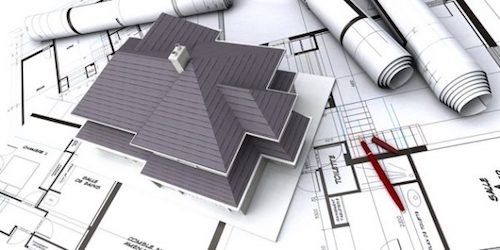When you are talking about property and business, surely you think about the connection between the two, yes? It is normal for people to think about that, especially in an age where even properties can be turned into a sort of business.

There are two ways of explaining the connection between a property and a business: the simple way and the complex way. In today’s article, we will talk about those two ways. Before we can go there, though, we need to first understand what a property is. So without further ado, let us talk a bit about what is property in general:
A bit about property
When you heard the word property, your mind must have turned to buildings, right? That kind of thinking is partially right because ‘property’ in a business sense is not exclusive to buildings. When a businessman or businesswoman are exchanging conversation and the word ‘property’ was brought up, the businessman or businesswoman’s assumption on the meaning of that word would not be exclusive to buildings only.
They would assume that their partner was talking about the things they have, be it tangible or intangible. Property includes real estate (or buildings, in the common tongue), furniture, equipment, or vehicles. Anything a business owner can get their hands on, it is a property.
In a sense, it is close to assets, and many have thought that property and assets are both interchangeable when talking about business. This is wrong, though, as assets and property are two different words with two different meanings. The common businessmen would say that they are the same, but those who have studied business deeper will understand that the two are not the same.
They are not the same because an asset is like the sub-category of property. To make it simple, everything that is an asset is included as properties, but not all things that are properties are assets. Things like liabilities are seen as properties, and liabilities are certainly not assets.
How do properties relate to businesses?
Like it has been mentioned before, there are two ways of explaining this. For the short one, we will just say that a property is used to determine how successful a businessman or businesswoman is. A business folk who got lots of properties is considered successful because having lots of properties is something that not many businessmen can have.
For the more complex answer, a property can be used to determine the net worth of a person. In turn, net worth is a sort of indicator that tells how rich a person is. A person’s net worth is determined from the amount of property he or she got minus their liability, and a person’s level of success can be judged from how much net worth they got. For example, Bob earns a US$150,000 from working his butt off at a drilling company. He owned a car worth US$200,000 and a house worth US$350,000. By virtue, his asset is at US$700,000.
However, he also needs to pay several loans because Bob earned his capital from loan sharks. The loans measure up to US$500,000, and Bob would need to pay it if he did not want the sharks to freeze his business. This US$500,000 is what businessmen call as a liability. Because counting a net worth requires you to subtract the number of net worth with the number of liability, then the formula would be like this: US$700,000 (Bob’s assets)-US$500,000 (Bob’s liability) =US$200,000 (Bob’s net worth). While Bob got US$700,000 up his sleeve, his real net worth is only at US$200,000.
There you have it, folks. While there is an easy way to connect property and business, the more complex way can prove to be a better way of seeing it because it provides transparency and a clear elaboration on a person’s ledger.